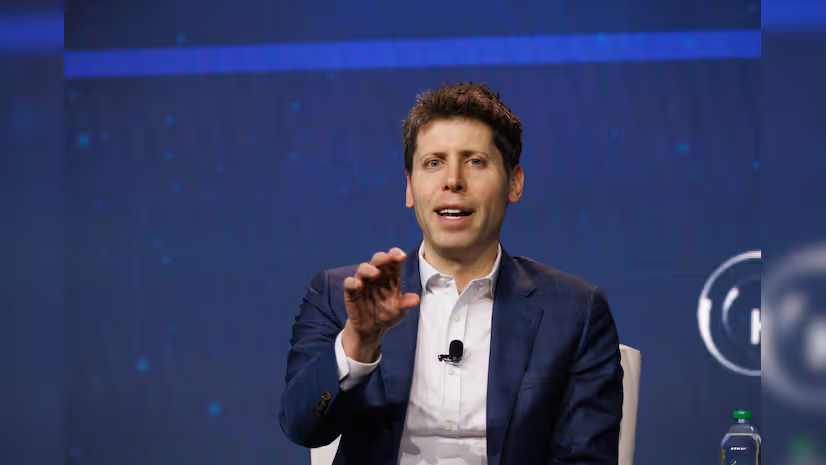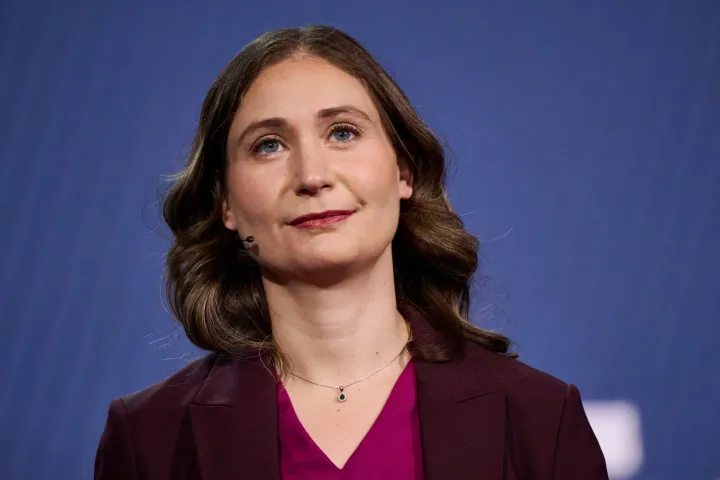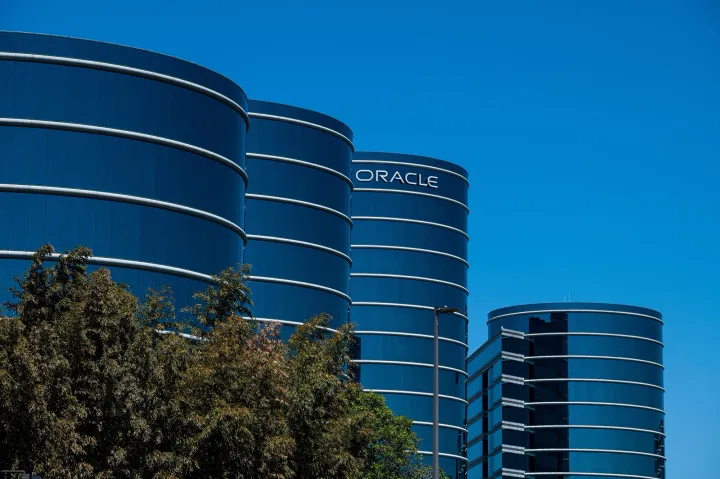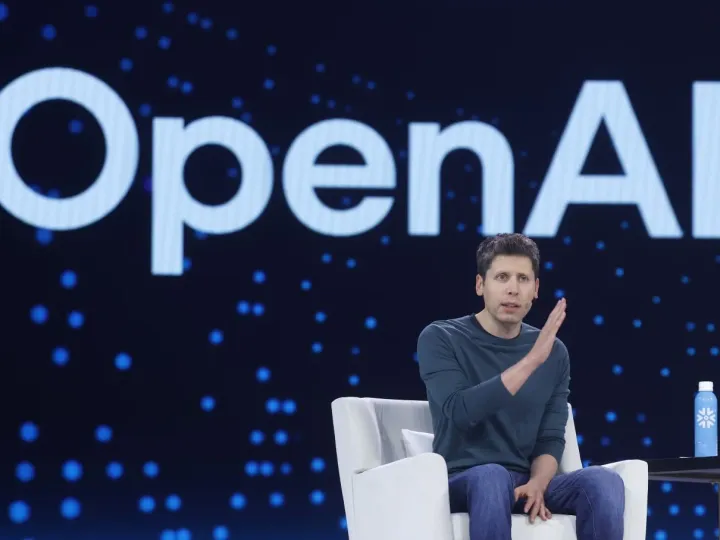India Becomes OpenAI’s Fastest Growing Market — Sam Altman Reveals Surprising Stats

Sam Altman Defends AI Art After Ghibli Backlash: “It’s a Net Win for Society”
OpenAI CEO Sam Altman recently addressed growing backlash around AI-generated art — especially the viral Ghibli-style trend — saying the technology has downsides but still brings major benefits to the world.
In a candid chat on entrepreneur Varun Mayya’s YouTube podcast, Altman discussed the evolving role of AI in creativity, job markets, and global tech access. He tackled everything from image generation to India’s booming interest in AI, the coding revolution, and even OpenAI’s origin story.
Let’s break it down.
The Ghibli-Style AI Art Controversy
Altman: “There Are Downsides, But Overall It’s a Win”
Altman admitted that AI-generated content comes with its share of negatives. The debate was reignited recently when GPT-4o’s new image generation tool allowed ChatGPT users to create images in the signature style of Studio Ghibli, the iconic Japanese animation studio. These creations flooded the internet — sparking fury from artists and fans.
Responding to the backlash, Altman said:
“The democratisation of content creation has been a big net win for society. It’s not a complete win — it definitely affects the art form, and yes, it causes job loss — but on the whole, it’s been positive.”
He compared the impact of AI on art to lowering the barriers in tech entrepreneurship, emphasizing how innovation often comes with friction.
Hayao Miyazaki’s Viral Criticism: Taken Out of Context?
A video resurfaced showing Ghibli co-founder Hayao Miyazaki calling AI an “insult to life.” Though fans saw this as a critique of AI art, others pointed out the clip might’ve been taken out of context.
Altman responded with empathy but stood his ground. He noted that AI’s rise creates more competition for artists — especially those with unique skills — but insisted the technology still serves a greater good.
AI and Job Displacement: What’s at Stake?
“Some Jobs Will Disappear Completely”
Altman tackled the most pressing fear about AI — jobs. He didn’t sugarcoat the impact:
“There will be some jobs that totally go away. But mostly, people will become way more productive and create better-quality work.”
He used graphic design as an example: while AI tools could handle much of the design work, human taste and creativity would still be essential — and may even lead to more design jobs as demand explodes.
New Kinds of Work Could Emerge
Altman also suggested that AI could create entirely new industries by unlocking demand that didn’t previously exist. For instance, small businesses can now use AI tools for logos, ads, or web design — tasks once too expensive to outsource.
AI in Coding: The Next Big Leap
“Coders Will Be 10x More Productive”
Altman is bullish about AI’s potential to revolutionize software development.
He predicted that in the next year or two, AI will make coders up to 10 times more productive:
“Someone who could write decent code will now be able to produce software at a much higher value. The only cost is paying for AI access.”
He referenced Jevons Paradox — a theory that increasing the efficiency of a resource usually leads to higher overall usage. In other words, cheaper, faster coding won’t eliminate programmers — it’ll increase demand for software.
India: The Fastest Growing AI Market
ChatGPT Image Boom Fuels Indian Adoption
India has emerged as OpenAI’s fastest-growing market globally, according to Altman. This surge was driven by the launch of image generation tools in ChatGPT.
OpenAI COO Brad Lightcap recently said over 700 million images had already been generated by users — a number expected to cross 1 billion soon.
Altman added:
“India was one of the first countries outside the US to fully embrace AI. Since then, usage has exploded.”
Cheaper AI Access Coming to India?
While acknowledging that price sensitivity is an issue in markets like India, Altman said OpenAI is working hard to develop more cost-efficient models.
He also hinted at talks with Jio Platforms to bring enterprise-grade ChatGPT to Indian businesses — potentially hosted on local servers to meet data privacy requirements.
Are GPT Wrappers a Joke? Altman Doesn’t Think So
“They Said That About AWS Wrappers Too”
Responding to critiques that startups using GPT-4 are “just wrappers,” Altman laughed it off:
“People used to say the same thing about AWS wrappers. Some of those became billion-dollar companies.”
He encouraged young entrepreneurs to embrace bold, unconventional ideas — even if they sound crazy.
“If someone at Y Combinator says your idea sounds terrible, you might actually be onto something big.”
A Reality Check: “I Thought AI Would Change Society More”
Despite all the hype, Altman offered a surprisingly grounded view on AI’s real-world impact:
“I somehow thought it was going to be a bigger change to society than it has turned out to be.”
While he remains optimistic about AI’s long-term value, he reminded listeners that revolutionary change is often slower — and messier — than expected.
The AI Debate Isn’t Over
Sam Altman’s comments add fuel to a fire that’s far from burning out. Whether it’s the future of art, the impact on jobs, or India’s role in shaping AI adoption, the OpenAI CEO clearly sees opportunity — even in controversy.
And while artists and critics may continue to push back, Altman’s message is clear: AI is here to stay, and its benefits — with all their complexities — may outweigh the costs.



